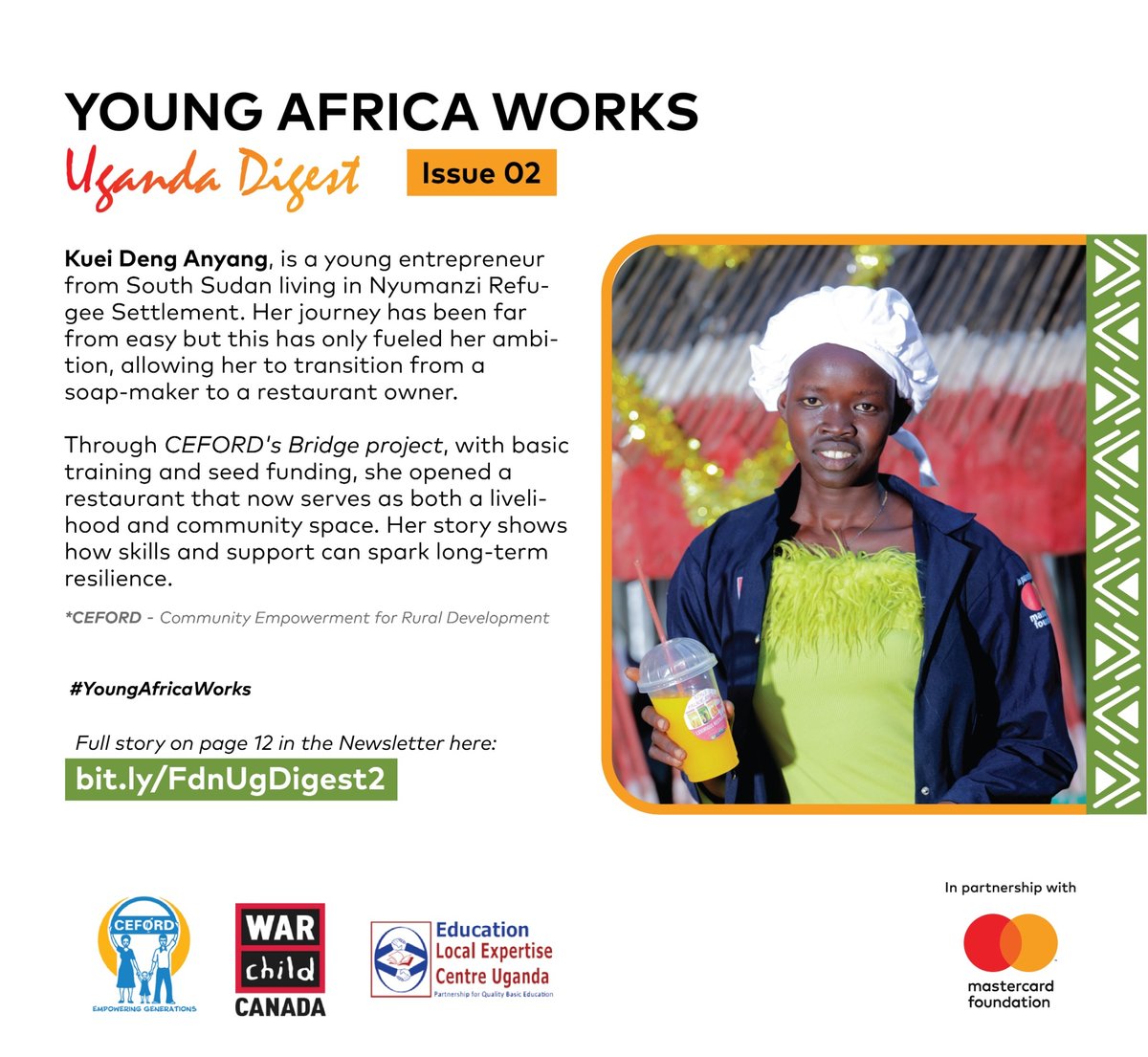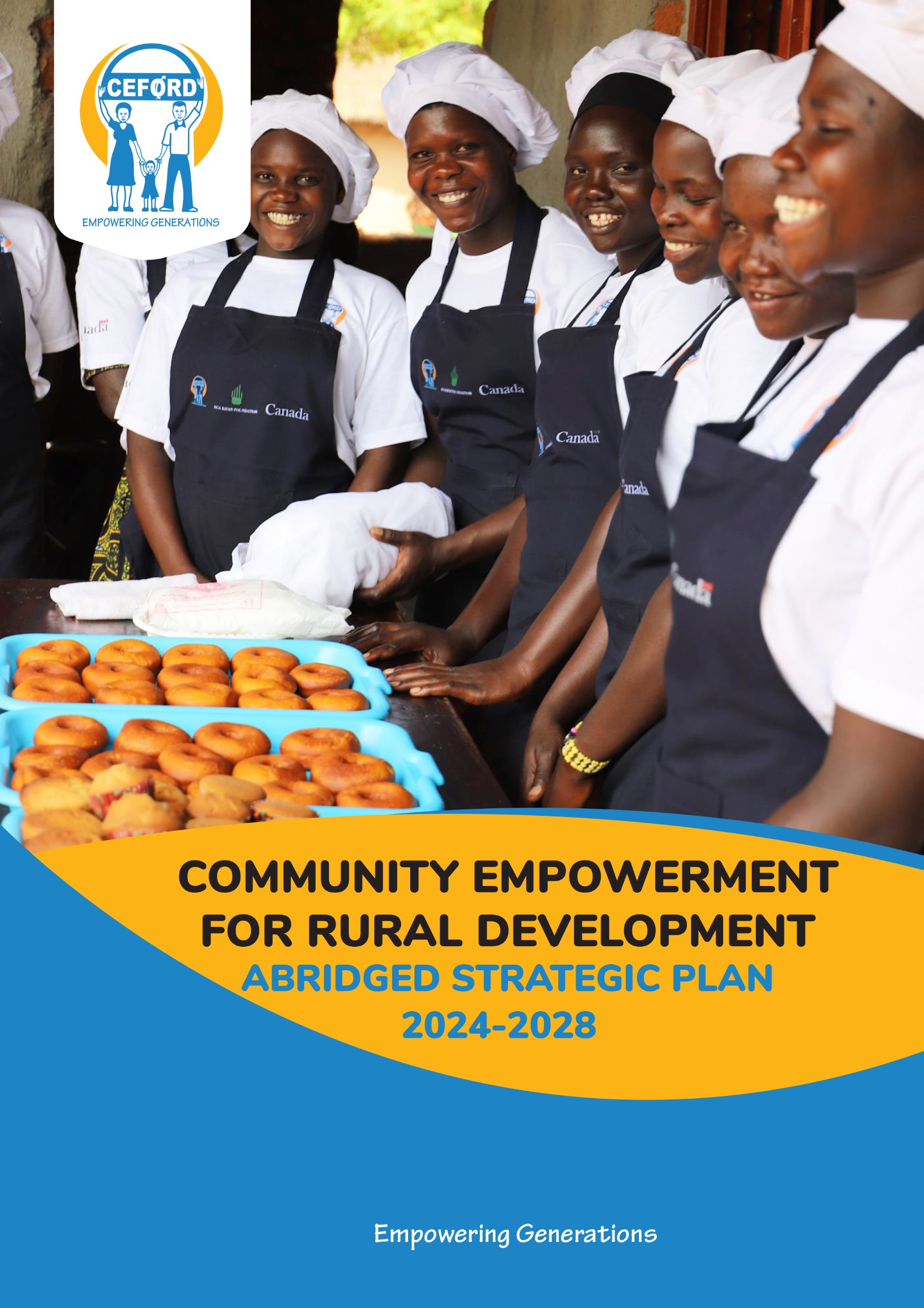Job summary: The Project Coordinator plays a critical role in guiding the project toward its overall mission of building resilience, sustainable livelihoods, and gender equality among refugee and host communities. This position requires a skilled and adaptable leader who can coordinate the full scope of project activities across climate-smart agriculture, environmental sustainability, and gender empowerment. The Coordinator will ensure that all project interventions are harmonized, impactful, and aligned with local priorities and community needs. By fostering strong partnerships, promoting inclusive community engagement, and implementing responsive strategies, the Project Coordinator will drive meaningful change in the targeted communities
About Us
CEFORD is a not-for-profit Non-Governmental Organization registered in June 2000 as a Limited Liability (by Guarantee) organization with registration number M/A/NB2000/11/2710 and incorporation number 8001000460788 under the laws of Uganda regulating NGO operations. CEFORD is a registered member of the Uganda National NGO Forum since February 2002. CEFORD currently operates in parts of the Districts of West Nile: Adjumani, Arua, Terego, Madi Okollo, Moyo, Nebbi, Yumbe, Koboko, Maracha, Obongi and Zombo and part of Rwenzori Region (Kasese and Masaka Districts) and has extended its services to Kiryandongo. The Thematic areas are Education, Livelihood, Community Development, Humanitarian Action, Community Health, Protection and Organizational Development. CEFORD’s Vision is ‘An Empowered Poverty Free Society’; and its Mission is “To provide capacity development services that builds the resilience of disadvantaged women, men, youth, children and their groups/organizations to realize their rights and improve their wellbeing”. CEFORD is guided by the Corporate Values of Mutual Respect; Transparency and Accountability; Equity and Participatory Approach.
CEFORD in partnership with HERS-EPER is implementing the “Community resilience strengthening Project through Improved Livelihoods, conflict transformation and Climate Adaptation in Yumbe and Obongi districts”, The project aims at enhancing the resilience of vulnerable communities, particularly South Sudanese refugees and host communities, in West Nile, Uganda, with a target of 1,500 direct beneficiaries (60% refugees and 40% host community members). The initiative seeks to address the pressing challenges of resource competition, food insecurity, and climate change impacts exacerbated by the prolonged presence of refugees. In order to realize the project goal and objectives, CEFORD therefore invites application from suitably qualified candidates to fill the following Position;
Duty Station: Yumbe
Reports to: Program Area Coordinator – Koboko Program
Contract period: Fixed-term – (12 months, renewable)
Key Responsibilities:
1. Project Planning and Coordination
- Lead the development of detailed, outcome-based work plans that guide implementation across CSA, environmental conservation, and gender equality initiatives. Plans will address specific challenges such as climate resilience, resource scarcity, and socio-economic vulnerabilities within refugee and host communities.
- Manage the full lifecycle of project activities, from inception to evaluation, ensuring that each step aligns with strategic goals. This includes regular field visits to monitor progress and resolve any challenges promptly.
- Coordinate closely with other project teams, such as MEAL and field officers, to ensure synergy and cohesion across activities. Promote inter-team learning and alignment, ensuring all staff are up-to-date on the project’s progress, goals, and any necessary adaptations.
- Act as the central point of contact between the project and the community, ensuring that activities are designed with a deep understanding of the local context, particularly the socio-economic dynamics and cultural sensitivities of refugee and host populations.
2. Stakeholder Engagement and Capacity Building
- Establish and maintain partnerships with local government representatives, NGOs, and community leaders, aligning the project with broader district development goals. Facilitate bi-annual stakeholder workshops to strengthen collaboration and resource sharing.
- Organize capacity-building sessions that support the adoption of CSA practices, regenerative agriculture, and sustainable natural resource management. Tailor these sessions to the specific needs of community members, especially women and youth, enhancing their skills and resilience.
- Engage with community influencers such as cultural and religious leaders to foster inclusive understanding and ownership of project goals. Conduct awareness campaigns and dialogue sessions that address critical issues like gender equality, climate adaptation, and the importance of environmental stewardship.
3. Operational and Field Implementation
- Coordinate initiatives that strengthen women’s leadership and participation in community decision-making processes. Facilitate mentorship programs, skills-building workshops, and capacity development initiatives to empower women and youth in sustainable agricultural practices and natural resource management.
- Collaborate with community leaders to promote inclusive practices that enable all community members to participate equitably. Address socio-cultural barriers that hinder women and marginalized groups from accessing land, resources, and leadership opportunities.
- Oversee environmental mapping exercises, identifying critical areas for intervention. Guide the planning and implementation of ecosystem restoration projects, such as tree planting, watershed management, and soil conservation activities to mitigate land degradation.
- Conduct regular community dialogues focused on shifting social norms around gender roles, fostering a supportive environment for women and men to share responsibilities in agriculture, decision-making, and community leadership.
- Promote the adoption of sustainable farming practices within farmer groups, incorporating soil health management, water conservation, and agroforestry into their techniques. Ensure that these practices are not only environmentally sustainable but also economically beneficial to the community.
- Support youth engagement in environmental conservation activities, promoting practices like beekeeping, tree nurseries, and community clean-up drives. Encourage youth to take leadership roles in these activities to foster long-term environmental stewardship.
4. Monitoring, Reporting, and Learning
- Work with the MEAL team to implement a data-driven approach in tracking project performance. Use data insights to adapt project strategies, ensuring they remain responsive to the evolving needs of refugee and host communities.
- Lead quarterly reflection sessions to review project achievements, challenges, and lessons learned with both internal teams and external stakeholders. Use these insights to adjust plans and foster a culture of continuous improvement.
- Prepare high-quality narrative and analytical reports that document project progress, impacts, and lessons learned. Ensure that reports are timely, accurate, and accessible to stakeholders, showcasing the project’s contributions to climate resilience, environmental sustainability, and gender empowerment.
5. Resource and Budget Management
- Work closely with the finance team to manage project resources, ensuring efficient use of funds. Develop and monitor budget plans for each outcome area to keep expenditures aligned with the project’s financial targets.
- Coordinate with procurement teams to ensure that project materials, equipment, and other resources are delivered on time and within budget. Oversee logistics for training, community events, and environmental restoration activities, ensuring they are well resourced and executed efficiently.
6. Qualifications, Skills and Experience:
- Bachelor’s degree in Agriculture and or Environmental Studies; a Master’s degree is a plus,
- Minimum of 5 years of experience in coordinating large-scale development projects, with a focus on community engagement, natural resource management, and/or genderfocused programs.
- Proven track record of effective multi-stakeholder engagement, including work with local government, NGOs, and community-based organizations.
- Strong knowledge of CSA principles, gender empowerment frameworks, and sustainable environmental management practices.
Ability to develop detailed, goal-oriented plans and effectively manage complex projects with multiple moving parts.
- Strong understanding of diverse cultural contexts, with the ability to build trust and relationships across different community groups.
- Skilled in collecting, analyzing, and presenting data to inform project strategy and communicate results to stakeholders.
- Demonstrated capacity to adapt to challenges and adjust project strategies as needed to respond to new information or unexpected developments.
- Strong verbal and written communication skills for engaging with community members, partners, and donors.
How to Apply:
Application letters, accompanied by a detailed curriculum vitae and photocopies of relevant academic documents such as transcripts, certificates, and testimonials, along with the contact details (including email addresses and daytime telephone numbers) of three referees – two of whom must be your former supervisors – should be addressed to: The Executive Director – CEFORD P.O. Box 303 Arua. Hard copy applications can be delivered to CEFORD Offices in Arua, Yumbe, Paidha, Moyo and Adjumani. Electronic application having all the required documents combined as one pdf file (only for Livelihood Coordinator, Project Officer and MEAL Assistant Positions) should be emailed with the subject clearly marked “Position Applied-Name of Applicant” to recruitment@ceford.or.ug. All applications should reach the above address not later than Thursday 10th July 2025 by 4:00PM. Late submission of applications and those not in one pdf file will not be accepted. Only shortlisted candidates will be contacted.
NOTE: Women and persons with disability are encouraged to apply.



